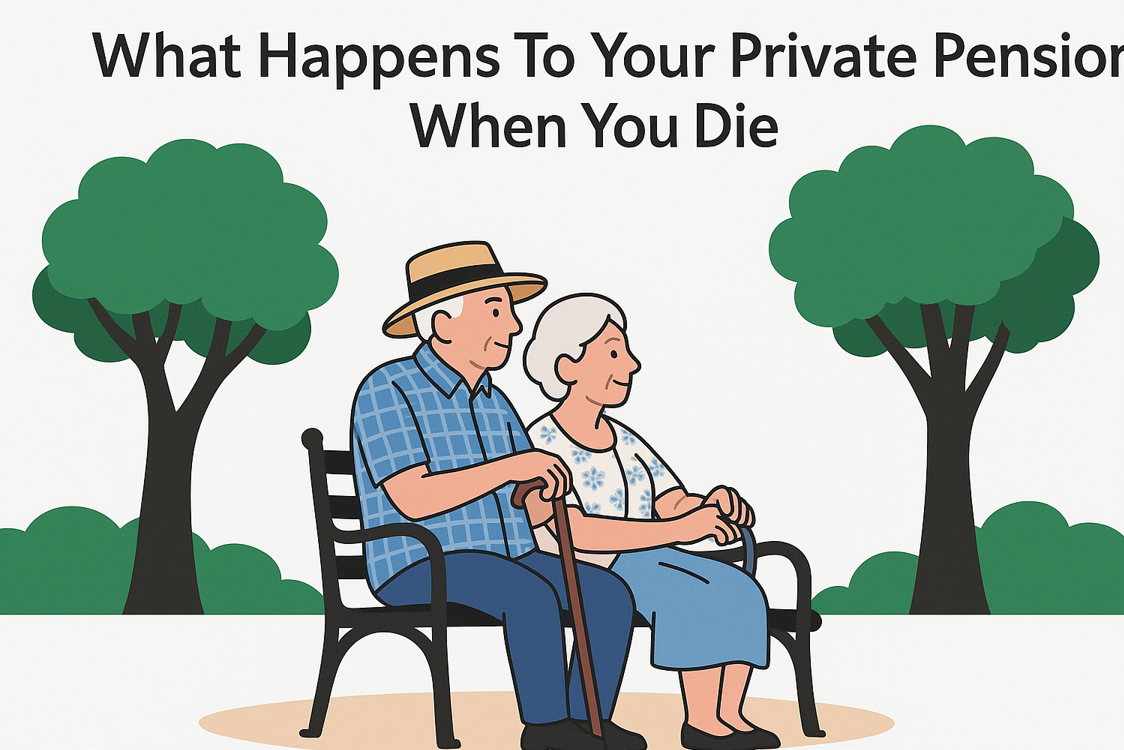When people search What Happens to Your Private Pension When You Die, they want clarity, control and peace of mind. This guide explains everything—from beneficiary nominations and tax‑rules to estate planning and early‑withdrawal pitfalls. With expert insight and answers to “People Also Ask” questions, you’ll leave empowered and prepared.
What types of private pensions exist in the UK?
What is a defined contribution pension?
A defined contribution (DC) pension is a personal or workplace pension plan where you and potentially your employer contribute a fixed amount regularly. These contributions are invested in funds—such as stocks, bonds or cash—and the pot’s final value depends on contributions, investment performance and fees.
How does a defined contribution pension work?
A DC plan involves:
-
Contributions: You (often with employer matching) contribute pre‑tax money.
-
Tax relief: You get basic-rate tax relief automatically; higher-rate taxpayers claim the balance via self-assessment.
-
Investments: You choose funds (e.g., equities, bonds, index trackers), and your returns depend on market performance.
-
Retirement options: At retirement, you can take:
-
25% tax‑free lump sum, followed by taxable drawdown
-
Lump sum only, in increments
-
Purchase an annuity, offering a guaranteed lifetime income
-
Impact of investment volatility on death benefits
Many guides don’t stress how the final pot value—what beneficiaries inherit—is tied to market risk. For example:
-
A sudden market drop just before death could diminish your fund by 10–20%.
-
Conversely, a market upswing near your death could boost the payout.
Mitigation: As you approach later stages of life, consider shifting into lower‑risk, more stable investments to preserve value for your heirs.
What is a defined benefit pension?
A defined benefit (DB) pension, often referred to as a final-salary or career-average plan, guarantees a fixed income at retirement based on your years of service and pay, independent of the performance of your investments.
What happens to a defined benefit pension when you die?
On your death:
-
A spouse or civil partner often receives a percentage (typically 50%, sometimes 60% or 100%) of your pension income.
-
Dependent children may receive a pension until they turn 18 (or 23, if in full-time education).
-
Some schemes also pay a lump sum on death.
Specific survivor benefit rates & remarriage
Many sources omit the exact rates and remarriage clauses. Here’s a more comprehensive view:
-
Benefit rates vary: e.g., NHS pensions offer 50%; teachers sometimes 66.67% on survivor’s pensions.
-
Remarriage clause: If a spouse remarries, some schemes reduce or stop payments—important to verify in your scheme booklet.
-
Children’s pensions: Usually only until 18, but extended if they stay in full‑time education or have special needs.
How do self‑invested personal pensions (SIPPs) differ?
A SIPP offers broad investment choice and control. You choose everything—from equities to commercial property—within a pension wrapper.
Can a SIPP be inherited tax-free?
Yes, if you die before 75:
- Your beneficiaries receive your SIPP pot as a tax-free lump sum or income.
-
They pay income tax at their marginal rate on any withdrawals.
Post‑death investment flexibility
SIPPs stand out for flexibility:
-
Controlled continuation: Beneficiaries can keep the SIPP invested, draw income gradually, or take cash.
-
De-risking: They can shift to safer assets while considering market volatility and income needs.
-
Re-investment options: Beneficiaries can use a drawdown approach—still within the tax‑efficient wrapper—rather than being forced to cash out immediately.
How does death before age 75 affect your private pension?

What happens to your pension fund before age 75?
Under-75 pensional death benefits remain completely tax-free, but how they pass on depends on your choice or scheme rules.
Will my pension pay out if I die before 75?
Yes. Your pension provider generally offers:
-
A tax-free lump sum, up to the available allowance.
-
Continued drawdown, giving beneficiaries an income stream.
-
The option to buy an annuity, securing a guaranteed income.
Choosing lump sum vs drawdown vs annuity
Each option has pros and cons:
| Option | Pros | Cons | Best for |
|---|---|---|---|
| Lump Sum | – Quick access to cash – Simple to understand |
– Potential for higher tax in one year – No long-term income control |
– Heirs needing immediate funds or debt clearance |
| Drawdown | – Flexibility to withdraw as needed – Continued growth potential |
– Investment risk remains – Income taxed under PAYE rules |
– Those wanting control, gradual access, and growth |
| Annuity | – Guaranteed income for life – Peace of mind |
– Poor rates for some – Little flexibility once purchased |
– Heirs or retirees seeking long-term financial security |
Who can inherit the pension pot?
You can nominate:
-
Family members
-
Friends
-
Charities
-
Estates or other entities
Can I leave my pension to anyone?
Yes. You use an “expression of wish” form to nominate any individual or organisation.
Non‑dependants as beneficiaries
Providers may treat non-dependants differently:
-
Possible stricter criteria, such as requiring proof of need or relationship.
-
High fees or lump-sum-only options may apply.
-
Always update forms to reflect any changes in relationships or intentions.
What tax implications apply?
Under-75 pension funds pass free from Income Tax and Inheritance Tax under current rules.
Is a private pension taxed on death before 75?
No—lump sums are completely tax-free, and drawdown payments go straight to the beneficiary’s estate.
Lump sum vs drawdown tax difference
| Aspect | Lump Sum | Drawdown |
|---|---|---|
| Tax Treatment | Usually up to 25% tax-free, rest taxed as income when taken | Withdrawals taxed as income under PAYE, even for beneficiaries |
| Initial Access | One-off payment; easier to manage tax in a single tax year | Ongoing taxable income each time money is drawn |
| Automatic PAYE Risk | Not applicable if taken as one-off lump sum | If pension is auto-placed into drawdown, PAYE may trigger without beneficiaries realising |
| Beneficiary Planning | Cleaner for those wanting cash upfront | May be less favourable if beneficiary prefers a lump sum |
| Best Practice Tip | Request direct lump sum if cash is intended | Make sure drawdown isn’t set up unless intended |
Can I withdraw my private pension before 55?
Normal pension access begins at 55 (increasing to 57 in 2028). Early access is rare and tightly controlled.
What are the rules for accessing a pension before 55?
You can only withdraw if:
-
You have severe ill-health, or
-
Your protected retirement age is less than 55.
Penalties, HMRC charges & scams
Warning signs of early-withdrawal schemes:
-
55% tax charge, plus interest and potential scam risk.
-
“Pension liberation” schemes may face legal sanctions—HMRC warns strongly against them.
-
Trustworthy routes: declare ill-health through medical evidence or prove protected age status if applicable.
What happens to your private pension when you die after age 75?
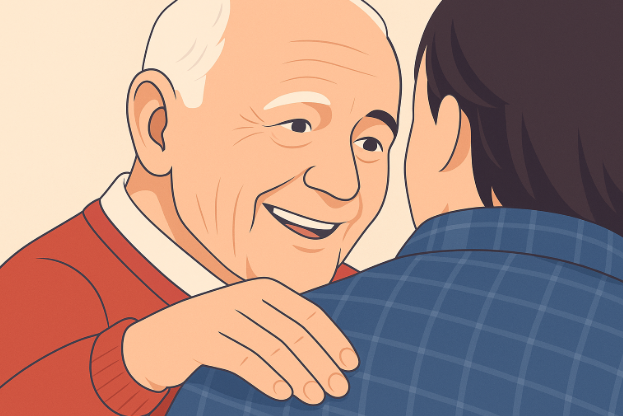
What changes after age 75?
Once you reach 75, your pension loses its tax-free death benefit status. This means beneficiaries will pay income tax on withdrawals, regardless of whether they take it as lump sum, drawdown, or annuity. Providers often use PAYE and might apply emergency tax codes if the beneficiary’s tax details aren’t already known.
How do pension rules change after 75?
After 75:
- Drawdowns and lump sum payments are subject to income tax at the beneficiary’s marginal tax rate.
- Providers deduct tax before payment. If tax codes are unknown, beneficiaries might need to reclaim overpaid tax.
- Even annuities cease tax-free payments unless joint-life or guaranteed term options are in place.
Provider discretion & withdrawal timing
Providers sometimes delay payments to confirm tax position or to set up PAYE. This can cause frustrating delays. To help:
-
Ask your provider to pre-register your beneficiaries’ tax details.
-
Discuss a staggered withdrawal plan until tax coding is in place.
-
Consider advising beneficiaries to wait until after the next tax year or adjust for lower marginal bands.
Who receives the funds after death after 75?
Nomination forms still guide, but providers have final discretion—especially when mixing spouse, charities, and non-dependants.
Can anyone inherit my pension after I turn 75?
Yes—but under tighter rules:
-
Spouses and civil partners are favoured.
-
Non-dependants, like friends or charities, can inherit, but UK law treats this as taxable by default (45% charge if via trust), and providers may restrict them to lump sums only.
Mixed beneficiary situations
If you nominate both a spouse and a charity:
-
Providers usually define proportions, but not always.
-
Trust-based nominations (e.g., to charity via a trust) may be taxed higher (45%) unless structured correctly.
What are the tax rates on inheritance post‑75?
Withdrawals after 75 are taxed fully:
-
Lump sums are taxed at the recipient’s marginal rate (20%, 40%, or 45%).
-
Drawdown withdrawals are taxed as each payment is made.
-
Bulky withdrawals in one year may trigger 45% on excess earnings.
How is pension income taxed after death over 75?
Beneficiaries pay income tax on anything taken:
-
Lump sums count as income for the tax year withdrawn.
-
Drawdowns are taxed based on the amount withdrawn each year.
Example: A £100k payout could push you into 45% tax band, costing £45k+.
Lump sum vs structured drawdown tax impact
| Aspect | Lump Sum (One-Off Withdrawal) | Structured Drawdown (Staggered Withdrawals) |
|---|---|---|
| Tax Band Risk | Large sum may push recipient into higher (40% or 45%) tax brackets | Smaller annual withdrawals help stay within 20% or 40% tax bands |
| Income Tax Efficiency | Less efficient; taxed heavily in the year of withdrawal | More efficient; can manage income levels each year |
| Tax-Free Portion | First 25% of total pot is tax-free if taken as a lump sum | First 25% of each withdrawal is tax-free (if using uncrystallised funds) |
| Flexibility | Inflexible; all income taxed in the same year | High; withdrawals can be tailored to yearly tax position |
| Best Use Case | Immediate need for full cash amount (e.g. clearing debt, inheritance split) | Beneficiaries wanting longer-term, tax-efficient income planning |
What is the process for nominating beneficiaries?
What is an ‘expression of wish’ form?
An expression of wish form guides pension trustees on who should receive your benefits, and often in what proportions. Although it has significant effect, it is not legally binding.
What is a pension nomination form?
It’s a form you submit to indicate preferred recipients (spouses, children, friends, charities) and can be updated at any time. Trustees then usually follow it when awarding death benefits.
Updating frequency, legal weight, provider duties
-
Legally non-binding, but providers generally honour them unless there’s a compelling reason.
-
No formal expiry date—check your provider’s guidance; many recommend updating every 2–5 years or after major life events.
-
Without a nomination, funds may default to your estate and lose potential pension trust protection from Inheritance Tax.
How does the provider make decisions?
Trustees balance your wishes with legal, financial, and trust obligations. They must consider dependants and may ignore overly restrictive or impossible requests.
Can pension providers choose different beneficiaries?
Yes – if your nomination is missing, outdated, or includes non-dependants without basis. They prioritise dependants and those with a demonstrated financial need.
Provider discretion vs binding nominations
| Aspect | Binding Nomination | Discretion-Based Nomination |
|---|---|---|
| Legal Status | Legally binding instruction (used in some final salary or older schemes) | Trustee has final say, but guided by your expression of wishes |
| Inheritance Tax (IHT) | May trigger IHT, as it could be seen as part of your estate | Usually exempt from IHT, as the payment is at trustees’ discretion |
| Flexibility | No flexibility if circumstances change (e.g. family breakdowns, needs shift) | Allows trustees to adapt to updated personal or family circumstances |
| Likelihood of Wishes Being Overridden | Rarely overridden—fixed instruction | Rare but possible if trustees believe another distribution is more appropriate |
| Best For | Those wanting certainty over who receives the benefit | Those prioritising IHT efficiency and flexibility for beneficiaries |
What if no nomination exists?
Without a valid nomination, the provider decides based on discretionary trust guidelines. Funds might go to dependants, estate executors, or be held pending clarity.
What happens to my pension if I don’t nominate?
Typically, trustees will:
-
Prioritise spouses or dependants
-
If none, look to executors or next of kin
-
If no one is available, leave funds in trust worth – possibly taxable or locked.
Estate involvement and delays
-
Without nomination, executors must liaise with providers, complicating and delaying probate.
-
Funds may temporarily remain frozen or taxed differently (e.g., as part of estate).
Advice: At a minimum, leave a basic expression of wish and note your executor’s contact to speed up administration.
How can I minimise inheritance tax on my pension?
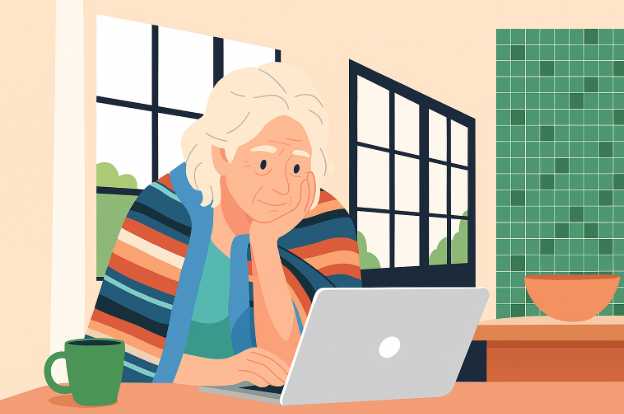
Is a pension included in your estate?
Thanks to pension trust protection, pensions now flow outside of your estate. But from April 2027, most pension assets will be subject to Inheritance Tax (IHT) at the usual 40% rate on amounts exceeding allowances.
Do pensions count for Inheritance Tax?
-
Before April 2027: No—pensions lie outside the estate if paid via trust.
-
From April 2027: Yes—unused pension pots and death benefits will be included in your estate and taxed at 40% above the nil-rate band.
Comparing pensions to other assets and allowances
-
Your nil-rate band (£325k) and residence nil-rate band (up to £175k) remain available.
-
A married couple may combine them for up to £1 million tax-free.
-
Strategies consider whether gifting, spending or ensuring no unused pension remains can minimise IHT exposure.
Can you use trusts to protect your pension?
Trusts are now common for IHT mitigation—used to separate ownership and define distributions after death.
Can I hold my pension in trust?
-
Most pensions already sit in a discretionary trust.
-
You can’t move your pension into a separate trust, but you can set up trusts (like discounted gift trusts) for other assets or drawdown proceeds.
What are alternative tax-efficient strategies?
Beyond trusts, various planning tactics can reduce estate IHT.
What tax-efficient ways protect pension inheritance?
-
Use PCLS (25% tax-free lump sum) to extract funds pre-death.
-
Gifting income (annual exemption) reduces estate size.
-
Provide life insurance trusts to cover future IHT bills.
In-depth strategies like gifting, downsizing, ISAs
-
Maximise ISA savings and use equity release or downsizing to reduce asset value, rather than leaving pensions untouched.
-
Use gift-exemption rules: gifts may become IHT-free after seven years.
-
Life insurance in trust can cover IHT liability without depleting other assets.
What happens to defined benefit pensions when you die?
What death-in-service benefits exist?
If you die before retirement, many schemes (e.g., NHS, LGPS) offer lump-sum benefits—usually a multiple of salary.
What is death in service benefit?
-
A lump sum (often 2–4× salary) is paid tax-free if death occurs under 75 and is paid within two years.
-
A refund of contributions and guaranteed pension payments (if within guarantee periods) may apply.
MPG guarantees & tax timing
-
Guarantee payment: e.g., a 5–10 year payment continues after death.
-
Must be paid within two years to remain tax-free; late payments lose exemption.
-
Check scheme booklet to know if guarantees or refunds apply.
How do widow(er)’s pensions work?
A surviving spouse or partner receives a lifelong income—typically 50%—based on your scheme.
Will my partner get my pension if I die?
-
Usually yes—50% lifetime income is standard, sometimes 66% or full. Eligibility depends on scheme rules.
Tiered payments, eligibility & remarriage
-
Many schemes reduce payments if spouse is more than ten years younger (e.g., 2.5% cut per year).
-
Payments may cease on remarriage—check your plan.
-
Children under 23 or disabled dependants can receive benefits too.
What happens to your SIPP when you die?
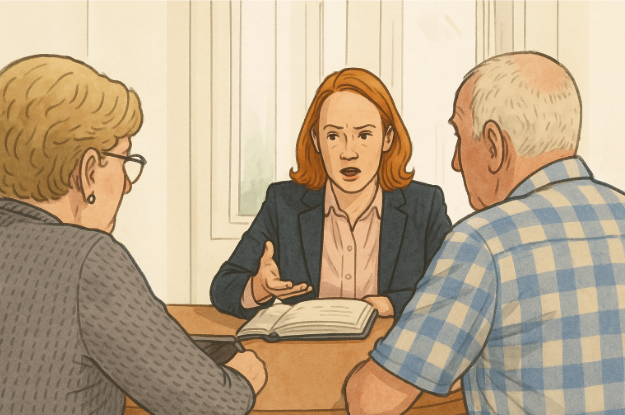
How does a SIPP pass to beneficiaries?
Beneficiaries access funds tax-efficiently, similar to defined contribution.
Can I leave my SIPP to children?
Yes. Children under 75 receive a lump payment or drawdown income that is tax-free. Over 75, income is taxable.
Provider rules, wrapper options
-
Providers may have limits on drawdown amounts/fees for minor beneficiaries.
-
They may need to wait until children reach majority (18) or use an appointed guardian.
What investment considerations apply?
Beneficiaries should manage risk and liquidity post-death.
Should I change SIPP investments near death?
Yes—switch to low-risk, liquid assets (e.g., cash, funds) to ensure easy access for beneficiaries.
De-risking strategies & market risk
-
Recommend gradual de-risking as death approaches.
-
Take liquidity money into account so that withdrawals or lump sum payments may be made without incurring losses or delays.
What are the potential tax implications?
SIPP death taxes are age-dependent.
Is a SIPP taxed when inherited?
- Under 75: Up to allowances, lump amounts and drawdowns are tax-free.
-
Over 75: Income is taxed at marginal rates; lump sums are treated as income.
Thresholds, marginal bands & planning
-
Use LSDBA limits (£1.07m) to identify tax-free drawdown under 75.
-
For over-75 deaths, plan phased withdrawals to keep beneficiaries in lower tax brackets.
What practical steps should you take now?
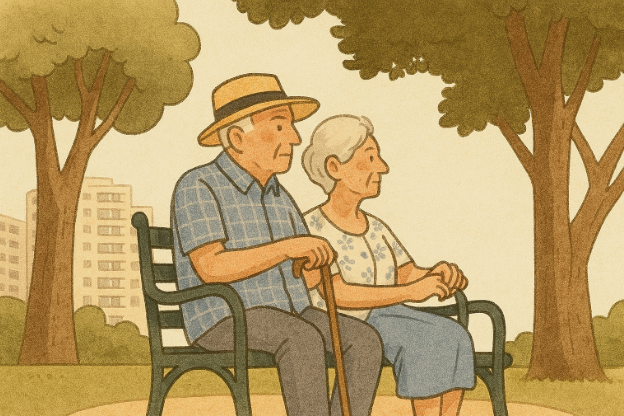
How often should you update your nomination?
Major life changes should prompt updates to your “expression of wish.”
When should I review my pension beneficiaries?
Review after marriage, divorce, birth, death, or every 2–5 years.
Default expiry & resetting
-
Some providers reset forms after 10 years if not updated.
-
Always confirm with provider and retain proof of updates (email or acknowledgement).
What documentation should you review?
Keep track of:
-
Scheme rules
-
Expression of wish forms
-
Annual statements
-
Crystallisation history
Which pension documents do I need to check?
-
The scheme handbook for death entitlements
-
Your latest nomination form
-
Your annual pension statement and crystallisation summary
LSDBA and crystallisation tracking
-
From April 2025, tracking crystallisation history is essential to manage LSDBA usage.
-
Check how much pension has been crystallised—impacting death benefit allowances.
Who should you inform?
Ensure key people know about your pension plans.
Who needs to know my pension wishes?
Provide details to your pension provider, executor, beneficiaries, and adviser.
Avoiding probate delays
-
Inform your executor or trustee before death to reduce delays.
-
To make estate administration easier, share tax and pension contacts.
Conclusion
Understanding What Happens to Your Private Pension When You Die ensures you control nominations and minimise tax. Key steps include:
-
Maintaining updated beneficiary forms.
-
Adjusting investments to secure value.
-
Planning withdrawals and estates tax-efficiently.
-
Preparing executors and trustees in advance.
This proactive strategy gives peace of mind and helps your pension serve your loved ones long after you’re gone.
FAQs
1. How quickly can beneficiaries access my pension?
Typically within months—but up to two years if trustees need full estate details. Drawdown or annuity setup may add time.
2. Can I change my beneficiary later?
Yes—update your expression of wish at any time, especially after life changes like marriage, children or divorce.
3. Do pension funds pay Inheritance Tax?
No—under current rules, pensions are outside estate IHT until April 2027. After that, unused pensions may be taxed.
4. What if I’m married or in a civil partnership?
Your partner usually receives 50–100% of your pension. That percentage and longevity depend on your scheme’s rules.
5. Will my children get my pension when I die?
They can receive drawdown or lump-sum benefits if named on your form. Their age, education, and scheme provisions determine eligibility and type.
6. Can I withdraw my private pension before 55?
Only in exceptional cases like terminal illness or a protected-start age. Withdraw early otherwise and face heavy HMRC charges and potential scam risk.
Related Posts:
- Understanding the UK State Pension HRP System Error
- 1980s 1990s State Pension HMRC Warning
- Is the State Pension Changing in August 2025?
- How Long After My 66th Birthday Will I Get My State Pension?

I’m Joe Chris, co-author at ukbusinessmag.co.uk and a long-time enthusiast of all things business and finance. My background is in digital marketing and e-commerce, and I love diving into trends that impact the UK business landscape. Through my writing, I aim to make useful, real-world advice accessible to business owners.

